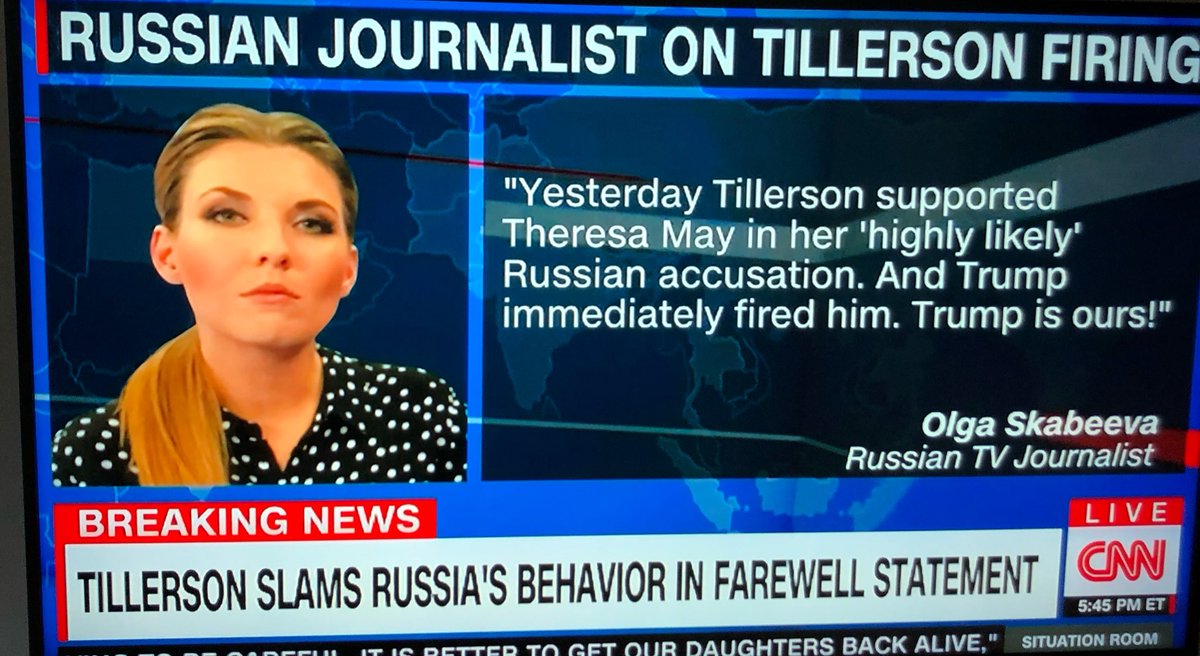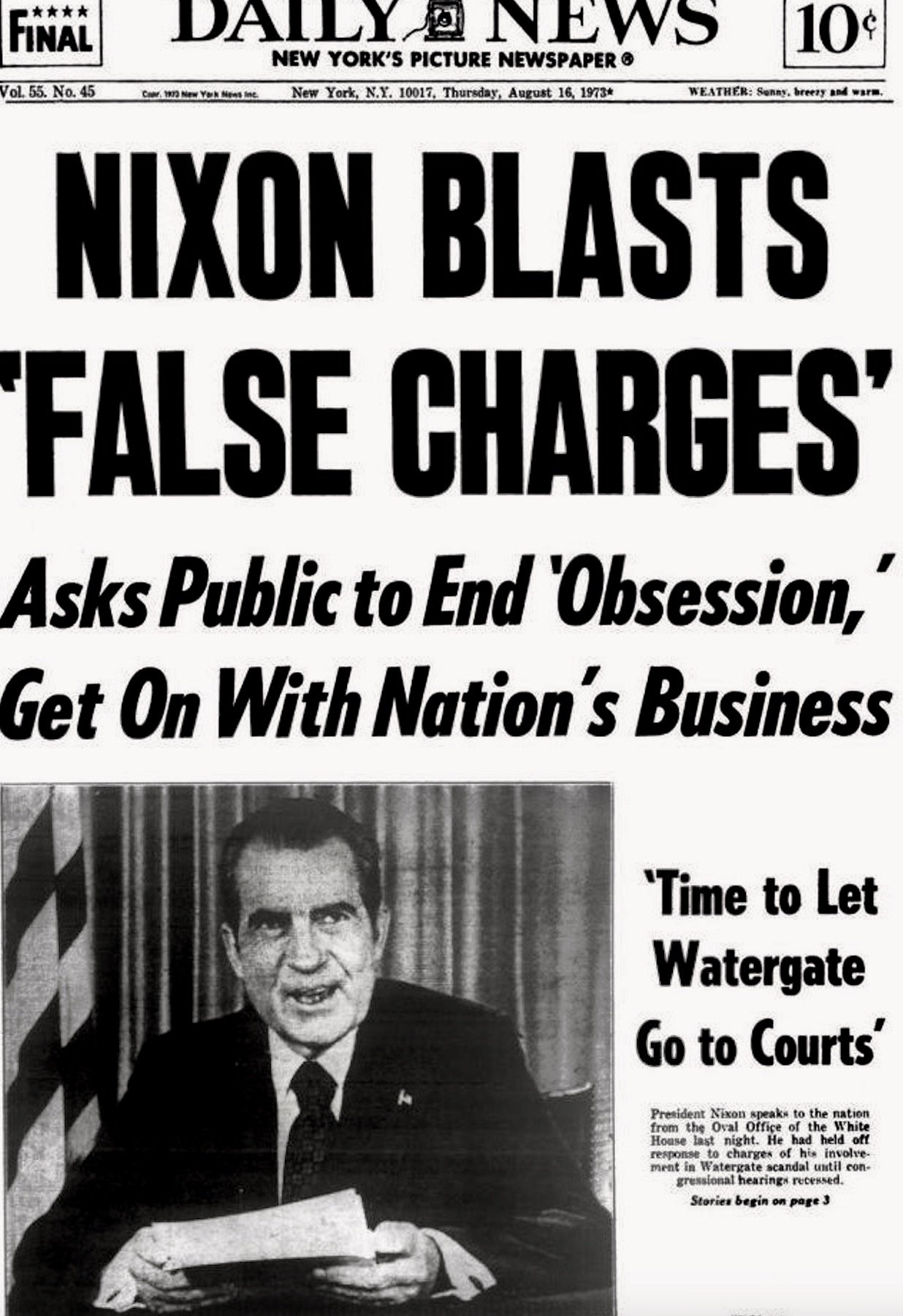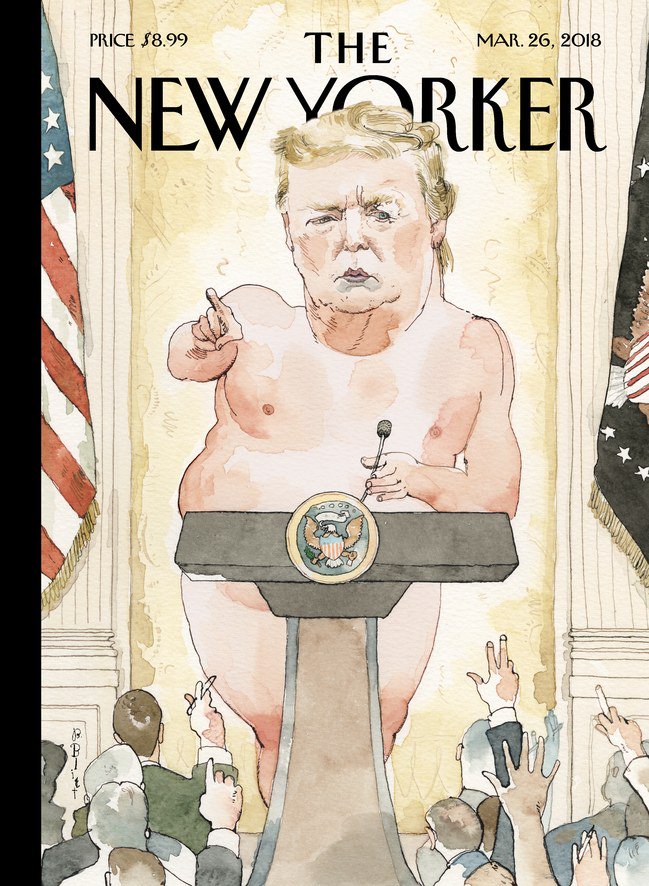With Vladimir Putin winning a fourth term in this weekend’s election, and the still-unfolding poisoning row driving Russia’s relations with Britain to a modern-era low, a distracted Donald Trump has been conspicuous by his lack of engagement and uncertainty in his White House. What does this mean for what’s next domestically and for America’s place on the world stage?
When Russian President Vladimir Putin delivered his recent state of the nation speech, it featured a warning that Russia had developed a new breed of weaponry, illustrated by a dramatic animated missile attack on Florida. It was the sort of simulation that, had it originated in Pyongyang, would guarantee at least an apoplectic late-night tweet from the West Wing.
The debate over whether such a threat is credible or not, and what the US should be doing about it, was – as seems all too normal these days – quickly overtaken by events on several fronts. But it was certainly a sign of an emerging bigger picture of geo-political realignment, bookended this weekend when China’s legislature approved the reappointment of President Xi Jinping, with no limit on the number of terms he can serve.
Trump had even joked about “giving that a shot.”
President Trump’s pursuit of an “America First” foreign policy during his first year in office and a withdrawal from global agreements like the Paris Climate Change Accords or the Trans-Pacific Partnership has long prompted speculation about a resulting leadership vacuum, but it is his relationship with Russia in particular that remains the wild card which could determine how the world’s superpowers interact in a new pecking order of influence.
As the investigation into the circumstances of the Salisbury poisoning continues – with remarks by some British cabinet members not exactly helping their case, to say nothing of the reported “cash for tennis” donations – Russia’s apparent strategy of keeping opponents on the wrong foot serves to show Putin as unchallenged abroad at the same time as he is consolidating power at home.
 Trump’s messy firing – and unnecessary humiliation – of Secretary of State Rex Tillerson after Tillerson spoke out in support of an ally about the poisoning incident, led one Russian media figure to exclaim on air that “Trump is ours!” In a statement, House Minority leader Nancy Pelosi said that “President Trump’s actions show that every official in his Administration is at the mercy of his personal whims and his worship of Putin.”
Trump’s messy firing – and unnecessary humiliation – of Secretary of State Rex Tillerson after Tillerson spoke out in support of an ally about the poisoning incident, led one Russian media figure to exclaim on air that “Trump is ours!” In a statement, House Minority leader Nancy Pelosi said that “President Trump’s actions show that every official in his Administration is at the mercy of his personal whims and his worship of Putin.”
A recent must-read article by Jane Mayer in the New Yorker even outlined, among many other things, how it was claimed that the Kremlin had blocked Trump’s initial choice as Secretary of State, Mitt Romney, who had been hawkish towards Russia during his 2012 presidential campaign.
David Frum writes at The Atlantic that for the “most verbally belligerent president in history, Donald Trump’s comments about Russia’s nerve-agent attack have been conspicuously weak.” Michael Crowley and Blake Hounshell write at Politico, meanwhile, that it seems when it comes to Russia, there are “two Trumps” – if his team may be going hard after Moscow, they say, “the president is not.”
Add it all up, and it amounts to the deepest national security breach between a president and his own advisers in memory — a bizarre disconnect between an administration scrambling to respond to Vladimir Putin’s revanchist assault on the West, and a chief executive who openly admires the Kremlin leader and has yet to allay suspicions that his relationship with Russia was not on the level. It’s the greatest mystery in American politics: What, exactly, explains Donald Trump’s love affair with Moscow?
Retired four-star general Barry McCaffrey went further, tweeting on Friday that, “Reluctantly I have concluded that President Trump is a serious threat to US national security. He is refusing to protect vital US interests from active Russian attacks. It is apparent that he is for some unknown reason under the sway of Mr Putin.”
And now, it seems, Washington is braced for yet more uncertainty at a time when what is needed is the exact opposite. Trump’s axing of his top diplomat has cast a shadow over preparations for the possible meeting with North Korean leader Kim Jong-Un. There’s much at stake, and the outcome of that meeting, should it take place, will have a huge influence on foreign policy as a whole. Trump’s choice to replace Tillerson, CIA director Mike Pompeo, will need to be confirmed by the Senate, but the possibility of National Security Advisor HR McMaster being replaced by the hawkish John Bolton could bring yet a new level of unpredictability to the Korean situation.
Meanwhile, Trump admitted to something many people suspected he did, just making stuff up in meetings with world leaders. Aaron Blake at the Washington Post wrote why that’s bad. “Can a guy who can’t be bothered to understand the basics before talking to foreign leaders and lawmakers do the kind of homework required for very sensitive and complicated negotiations involving nuclear programs? And what if he doesn’t even try? What if he decides to wing it?”
President of the Council on Foreign Relations Richard Haass tweeted:
Reliability is essential in a great power and its leader, be it to reassure allies or to deter foes. To raise questions as to whether you mean what you say weakens bonds with the former and deterrence of the latter at one and the same time.
Hacking
Of course, there are plenty in the nation’s capital who believe Russia has long been conducting a form of hybrid warfare against the US, with little apparent price to pay. This week the Department of Homeland Security and the FBI accused Russian hackers of “waging coordinated cyberattacks against the US energy sector and other elements of critical infrastructure since at least March 2016.”
With the head of cybersecurity at the DHS saying that Russians successfully penetrated voter registration rolls of several US states prior to the 2016 presidential election, it’s striking that NSA director Mike Rogers said the White House has not instructed the intelligence community to counter Russian activity in the run up to this year’s midterm elections in November.
It was revealed that the State Department had so far spent zero of the $120m available to counter Russian meddling. Gardiner Harris writes at the New York Times: “The delay is just one symptom of the largely passive response to the Russian interference by President Trump, who has made little if any public effort to rally the nation to confront Moscow and defend democratic institutions.”
Even the sanctions finally imposed this week by the Department of Justice on a number of Russian individuals and organizations were described as a “name and shame exercise” with “no bite”. In February, Special Counsel Robert Mueller had issued indictments against some of the same targets, which the Washington Post said: “..outlines a sophisticated operation with three primary goals: to help elect Donald Trump as president of the United States; to undermine faith in our democratic institutions; and to stoke polarization by turning Americans against one another. Each of these goals shares a common overarching aim: to weaken the United States by sowing chaos and division in ways that benefit Russia.”
The Post continued:
Trump and his ardent supporters, of course, are eager to downplay the threat. Because the Russians tried to help Trump win, they want to pretend it was minor, unimportant and unworthy of a response. That helps explain why Trump failed to impose sanctions that Congress passed with overwhelming bipartisan support, why he bizarrely proposed setting up a joint cybersecurity task force with the same government that conducted a major cyberattack against the United States and why he keeps acting as Russian President Vladimir Putin’s chief apologist in the West.
Indeed, since Trump sent this now infamous tweet a month ago, barely a day has passed where it’s hard to disagree with his final premise.
If it was the GOAL of Russia to create discord, disruption and chaos within the U.S. then, with all of the Committee Hearings, Investigations and Party hatred, they have succeeded beyond their wildest dreams. They are laughing their asses off in Moscow. Get smart America!
— Donald J. Trump (@realDonaldTrump) February 18, 2018
A Deal With The Devin?
Despite claiming that he had done “more in his first year” to counter Russian meddling than the Obama administration, the president has appeared more concerned with blaming the FBI and the Special Counsel for hampering his presidency – with, as always, his Twitter narrative (which the Washington Post now describes as “unrestrained”) claiming that everything is going his way; from pronouncing victory with the abrupt ending of the House Intelligence Committee investigation and its Republican report which he said proved “no collusion,” to celebrating the firing of FBI Deputy Director Andrew McCabe as “a great day for democracy”.
Jonathan Chait in New York magazine writes that the current wave of uncertainty in the White House is a precursor to Trump turning his fire towards Mueller.
It is notable as well that Trump has successfully lined up most of his party apparatus behind him for any confrontation. The House Republicans closed their Russia “investigation,” which was obviously intended all along to provide a pretext for declaring Trump innocent. Conservative media has been hammering the message for months that Trump has done nothing wrong, and that all the criminal misbehavior exists on the side of the investigators.
So, what happens next?
An emboldened Trump appears to be saying what he really thinks. And although his lawyers insist there is no plan to sack Mueller, it is significant that this weekend also saw a call by Trump’s lawyer that it was now time to “bring to an end” the investigation. Despite objections from some Republicans, the Washington Post warns that “More than a year into Trump’s presidency, there’s nothing to suggest Republicans will hinder Trump from firing Mueller and/or ending the Russia probe… With tariffs being the lone exception, Trump has proved to be reliably Republican, and he remains overwhelmingly popular with the party’s base. As long as the president keeps signing tax cuts, slashing regulations and appointing conservative justices and judges, there’s little reason for most Republicans to push back against him.”
 The Post continues: “The historical record also suggests a Republican majority will leave the president essentially unrestrained. When Democrats wanted an investigation into President Richard Nixon’s White House and the break-in at the Watergate Hotel, Republicans dismissed the allegations. They even suggested probes instead look into the 1964 and 1968 elections, misdirection similar to modern Republicans’ calls for a probe into the FBI. The difference? Democrats, not Republicans, controlled the House and the Senate. They forced Nixon to greenlight appointing an independent prosecutor, and they were the party that held Nixon accountable.”
The Post continues: “The historical record also suggests a Republican majority will leave the president essentially unrestrained. When Democrats wanted an investigation into President Richard Nixon’s White House and the break-in at the Watergate Hotel, Republicans dismissed the allegations. They even suggested probes instead look into the 1964 and 1968 elections, misdirection similar to modern Republicans’ calls for a probe into the FBI. The difference? Democrats, not Republicans, controlled the House and the Senate. They forced Nixon to greenlight appointing an independent prosecutor, and they were the party that held Nixon accountable.”
 In the latest striking New Yorker cover by Barry Blitt, the president is “exposed”, in an emperor-has-no-clothes interaction with the press. This weekend, even moreso than many others, it is genuinely difficult to predict the next steps in this remarkable presidency. We have spent much of the past year somehow pretending that everything is just a different shade of normal. We need to be asking as many questions of ourselves as we are of the President.
In the latest striking New Yorker cover by Barry Blitt, the president is “exposed”, in an emperor-has-no-clothes interaction with the press. This weekend, even moreso than many others, it is genuinely difficult to predict the next steps in this remarkable presidency. We have spent much of the past year somehow pretending that everything is just a different shade of normal. We need to be asking as many questions of ourselves as we are of the President.
It might well be that we have reached a point where anything Donald Trump may have done in connection with Russian meddling in the last election is of less importance than what he’s not doing to prevent meddling in the next one.
And, of course, why he’s not doing it. Uncovering that might ultimately be Mr Mueller’s greatest contribution to the safety of the nation.
Also published on Medium.
